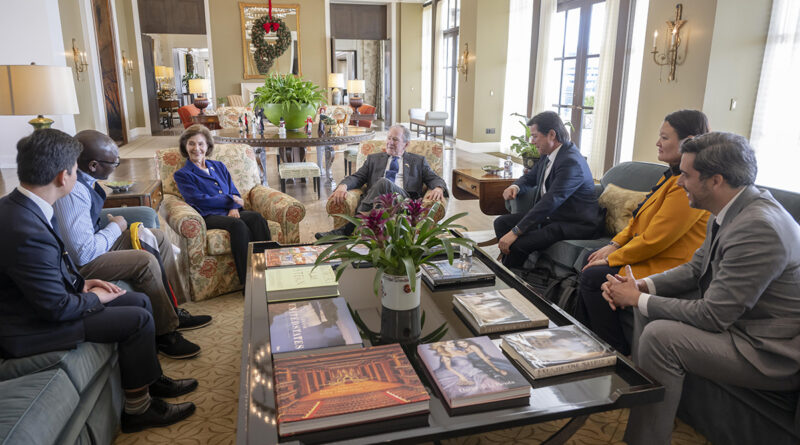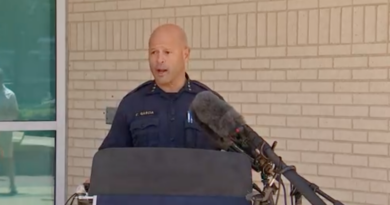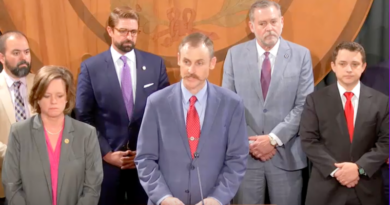Bush: U.S. Must Lead on Ukraine
Former President George W. Bush contends the U.S. should continue providing military aid to Ukraine and, more generally, “care about the human condition elsewhere.”
Bush discussed the war in Europe and worldwide concerns about autocracy during a program on Nov. 16 at his namesake Presidential Center.
The Struggle for Freedom program featured virtual remarks from Taiwan President Tsai Ing-wen, as well as remarks from activists from Russia, China, North Korea, Zimbabwe, and Venezuela.
“If the United States does not lead, the world will not follow,” Bush said. “If the United States doesn’t keep the lead on Ukraine, it’s less likely that European nations will want to support the Ukrainians. Our leadership is indispensable for collective action against autocracy.”
Ing-Wen’s remarks struck a similar tone.
“Together with like-minded partners, we will also make efforts to support Ukraine’s reconstruction of its schools, hospitals, and infrastructure that have been destroyed by the war.
Our efforts must not stop here. The menacing behavior of authoritarian regimes should be a wake-up call to all democracies. We must work together to strengthen our resilience and safeguard our values,” Tsai said.
Ukrainian President Volodymyr Zelensky, who Bush has referred to as “the Winston Churchill of our time,” was slated to deliver remarks virtually at the event but backed out of it amid heavy Russian missile strikes.
The discussions came as some U.S. political leaders from both parties raised questions about the extent to which the U.S. should continue to provide military support to Ukraine.
GOP leader Kevin McCarthy, who’s vying to become speaker after the GOP narrowly took back control of the U.S. House, warned shortly before the Nov. 8 midterm elections that Republicans would not write a “blank check” to Ukraine.
In October, a group of progressive congressional Democrats withdrew a letter they’d sent to President Joe Biden that had urged Biden to combine military and economic support with a “proactive diplomatic push, redoubling efforts to seek a realistic framework for a ceasefire.”
Bush acknowledged the uncertainty regarding the future aid to Ukraine, comparing the opposition to the support to pushback he received when he was president to commitment to the President’s Emergency Plan for Aids Relief (PEPFAR) in 2003.
“There’s kind of an isolationist tendency at times to say, ‘You know, we’ve got our own problems, let others solve it … why do we want to spend money on total strangers?” he said. “One answer is because that’s who we are. We’re a generous, decent people that care about the human condition elsewhere.”
Bush also spoke about his refusal to meet authoritarian leaders during his time in office.
“I didn’t want to lend our great status as a beacon of freedom to honoring an autocrat,” Bush said. “Some people disagree with that position.”
During his presidency, Bush famously described how he looked Russian president Vladimir Putin in the eye and “was able to get a sense of his soul.”
Acknowledging the incident, Bush quipped to his audience, “He changed.”
In conclusion, Bush said, “I’m a loyal Republican and I’m going to keep my voice out there regardless of what other Republicans say.”








